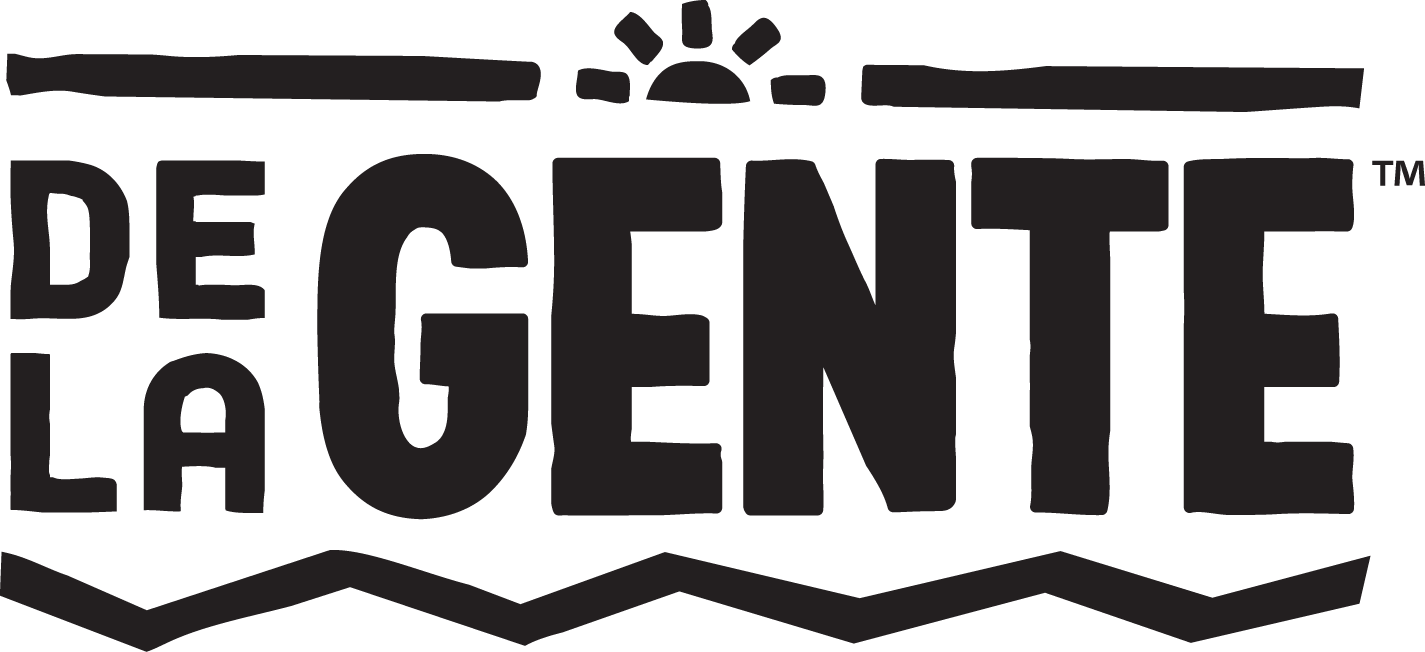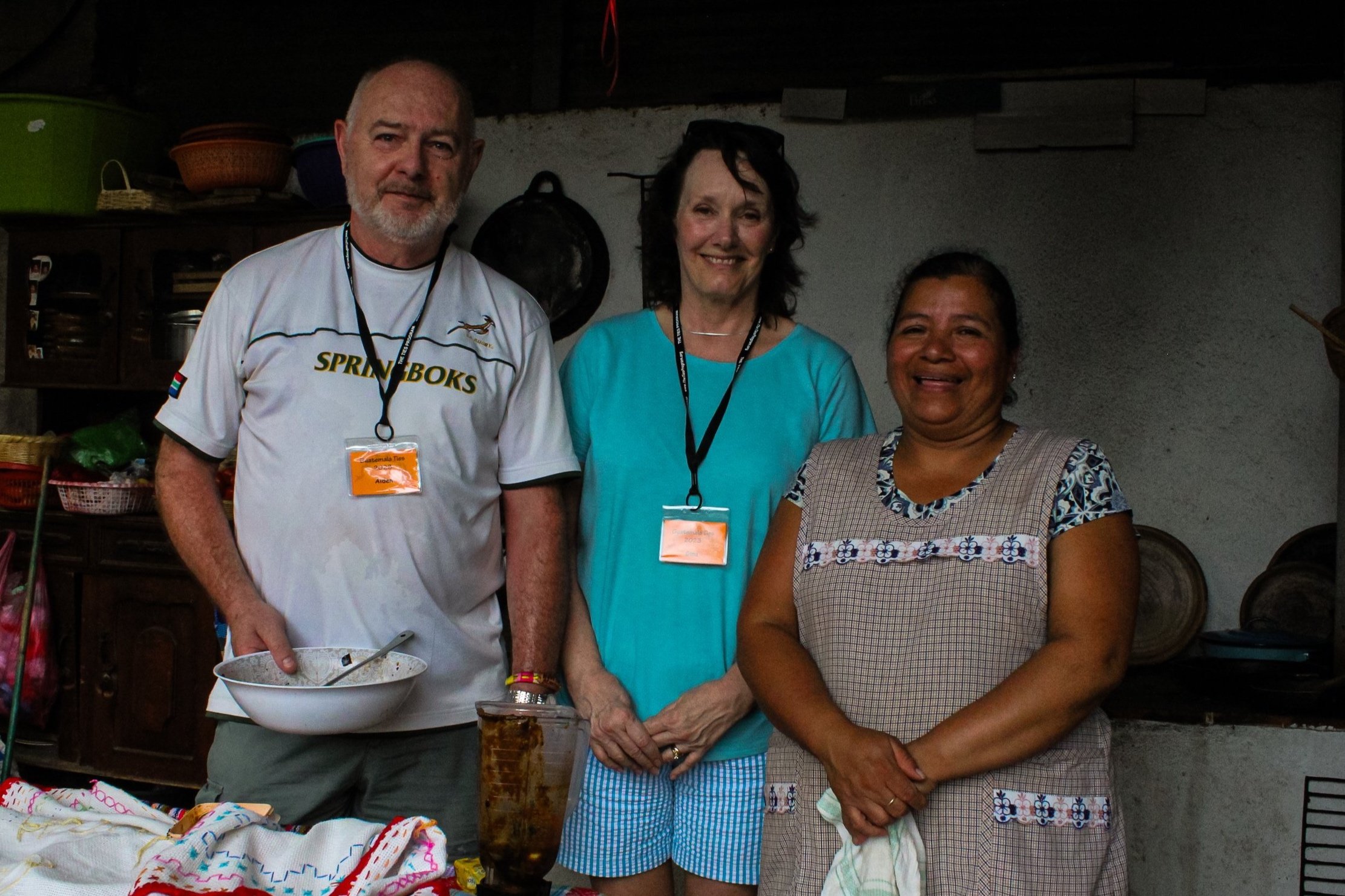Empowering the People and Communities Behind the Cup
By Aliisa Oake
De La Gente is dedicated towards their partnerships with nine coffee cooperatives in Guatemala and providing them with opportunities to expand their farms and establish a better life for their families and communities. Explore the personal stories from coffee producers and the impact of local tourism on their livelihoods. Learn how your support empowers the people and communities behind the cup.
Life Among Coffee Farmers
Located in the highlands of Guatemala, among the slopes of volcanic soil, the sun rises, and the day slowly begins. Farmers emerge from their homes, ready to nurture delicate coffee cherries. They gather amongst each other in the fields, sharing stories of their pasts and dreams for the future, taking part in a growing bond through sweat and determination. As the sun climbs higher, more and more cherries are picked, their vibrant colors beginning to fill their baskets.
When tourists arrive, they are welcomed by farmers with warm smiles and excitement for sharing their knowledge and passion for this valued crop. Guests walk through the rows of coffee trees, learning about the bean to brew process, and later gathering to enjoy freshly brewed coffee. Each sip tells a story of hard work, community, and deep-rooted connection to the land.
Coffee is more than just a drink. It’s a livelihood, celebration of culture, and bridge for connecting people with the earth and communities. The coffee journey is as significant as the destination of where it’s going. Coffee cultivating communities are dedicated to farming, to not only provide economic stability and support for their families, but also foster community bonds, heritage, and pride in their expertise.
De la Gente has been working with Guatemala’s coffee communities since 2014 and hopes to increase coffee sales for growers by expanding upon hands-on experiences. Their tourism and immersion programs, which operate in San Miguel Escobar and San Lucas Tolimán, allow relationships to be built within different actors of the supply chain and the consumers themselves.
Perspectives of a Coffee Community
One farmer whose story exemplifies this dedication is Carlos Humberto Paredes, a new member of DLG’s Community Tourism Program, having joined in 2023. He is the third generation of coffee farmers in his family, with his journey beginning in the Coffee Growers of San Miguel Escobar Cooperative. Growing up surrounded by coffee plants, Carlos Humberto learned about the intricacies of farming at a young age.
In the past, he only sold his coffee as fruit, but he is now expanding upon processing methods and selling more coffee. Before joining the Community Tourism Program, the only income he generated was from cultivating coffee. Being involved in the program has affected his coffee farming operations greatly, especially during the summer when they don’t have a harvest. Coffee cultivation doesn't provide a consistent income for farmers, so hosting coffee tours serve as a platform for extra income.
Carlos Humberto was asked how coffee farming and working with De La Gente has impacted his community. He shared some insight on this:
“We can support other people in the community by hiring them during the harvest. By working with De La Gente, we are motivated to have better crops to be able to export [and improve quality], and that is how we [are able to] hire people from the community [while also motivating] other people to join the cooperative and teach them everything we have learned so that more people can export coffee. I feel happy, happy and grateful with De La Gente because it is an opportunity for us as small coffee farmers … We [are able to] help other neighbors in the community and I thank DLG for the support they give us. I’m happy.”
Roberto Cotjin started his coffee journey at the age of 12, and has been on this path for nearly 58 years and has been a part of the De La Gente’s Immersion Program since 2016. His passage reflects his dedication and love for coffee farming, discovering dreams and aspirations in every bean along the way. He is a member of the Ija’tz Cooperative, “ija’tz” being the Kaqchikel word for “seed”, which symbolizes life and regeneration for the community. Roberto has worked towards developing his farm and community, and found a new passion for teaching students about his work. Something that he loves about being part of the Faculty-led trips with the Immersion Program is being able to have the opportunity to create connections with visitors from around the world.
“My favorite part of [working with coffee and teaching students] is during [service-learning projects], construction work, and coffee pulping [during harvest season]. That’s where I’ve talked with them the most … We send blessings to the students, perhaps they are already professionals. Thank you for helping us, we always have open arms to [welcome you].”
In being a part of a cooperative, Carlos Humberto, Roberto, and the other members of their communities are able to take more control over their economic future, share resources, and grow together. More opportunities arise when ideas are exchanged, such as branching out into the tourism industry by hosting cooking classes.
Cristina Morales, the wife of coffee producer Juan Carlos Rodriguez of the Coffee Growers of San Miguel Escobar Cooperative, has been teaching cooking classes for about four years. She has seen her community generate new ideas and benefit greatly by local tourism, especially through working with other businesses in her town. She invites guests into her home to share a culinary experience, which further connects visitors with Guatemala’s rich traditions and flavors of local cuisine.
“My husband is a member of the group of coffee growers that gives the coffee tour. Since lunch is served [during the tour], the idea of doing cooking classes arose from there and they invited me to teach the classes. In my case, when I buy the ingredients, I buy everything in the same town, in different little stores, so in this way, we help different people’s businesses.”
With each harvest, the communities of De La Gente’s partner cooperative’s in Guatemala hope to create a brighter future for their family and ensure a sustainable craft for generations to come. Immersive tourism trips enable citizens to feel more inspired as creativity and collaboration become more encouraged. People are able to form genuine connections to communities and develop meaningful relationships during their travel experience.
Goals for Our Coffee Cooperative Members
Coffee in Guatemala has been grown and exported since the 1850s and remains the second-most important agricultural export. The coffee sector employs more than 125,000 Guatemalan families (World Coffee Research). Coffee has been a driving force in Guatemala’s economy for many years, with strategies constantly being developed to support and enhance the future of the industry and the people who work to create it.
De La Gente works towards creating impacts in communities by giving them access to improved international markets for their coffee. In relation to the tourism and immersion programs, executive director Danilo Rodríguez shared one of De La Gente’s future objectives to expand markets.
“Right now, DLG is commercializing about 60% of the coffee that its 9 partner cooperatives produce. We seek to expand the market and be able to commercialize 100% of the coffee they produce and maximize the impact in the communities. As we use coffee as that vehicle to create the economic impact, we also want to help small scale producers diversify their income, just as we are doing with our Tourism and Immersion programs.”
By being exposed to new areas of income, our partner producers have become more inspired and motivated towards achieving their goals. Carlos Humberto is working towards expanding his farm and purchasing more cuerdas (traditional units of land areas that are equivalent to 4,700 square yards). He currently has 9 cuerdas for coffee trees and 2 with corn and beans for his families consumption, so he hopes to continue to provide for his family by improving his housing conditions and increasing his coffee production. Roberto hopes to not only work towards developing his community and economy, but create a solid and lasting friendship with visitors.
The coffee industry is constantly evolving and becoming of higher demand around the world. As people become more aware of the specialty coffee industry and educated about aspects of the industry, it’s essential for coffee farmers to take advantage of consumption patterns. By catering to shifts in the coffee market, DLG’s programs serve as effective outreach initiatives that diversify their product offerings and cater to changing consumer preferences, while also providing support to coffee producers.
Tourism’s Influence on Coffee Communities
By including community-based tourism and immersive experiences in your travels, you are contributing towards generating an alternative income for coffee communities that will lead to development of knowledge and infrastructures, along with supporting Guatemala’s socio-economic development. You as a consumer play an important role in making coffee-growing a dignified livelihood for the 140+ small scale farmers De La Gente partners with.
DLG implemented the Community Tourism Program to work towards a goal of generating economic opportunities for small-scale coffee producers and raising awareness about the coffee industry. Since 2014, they have hosted 22,170 tourists from around the world, where hosting communities have received USD 397,895.78 in proceeds. The impacts of the Immersion Program has led to raising more awareness about coffee production and all aspects involved from farmer to consumer. They have hosted 121 groups, in total 1,686 participants (including Faculty-Led, Immersion, and Origin trips). This represented a total of $343,006.83 of income for hosting communities.
De La Gente invites tourists to the farmers’ land to showcase their hard work, provide a market for their specialty coffee, and educate visitors on paying fair prices. With this, there has not only been an increase in access to markets and valuable resources, but also a generational change that has been implemented. Coffee growing communities of DLG’s partner cooperatives have become better places for people to build their lives. Farmers who receive and generate enough income have been working towards training and teaching new members of their groups, while pursuing a better lifestyle.
For more information about some of De La Gente’s goals and their trade model, read about it in this blog.
“Our programs give the opportunity to create authentic cultural exchange spaces, where not only the visitor learns about the culture of Guatemala, but the host community also learns about other cultures. This has given way to local people thinking outside the box and being able to innovate, leaving behind the thinking that things should always be done the same way. I always think about the impact of tourism, wherever we go we leave a mark.”
- Danilo Rodríguez
About the Author
My name is Aliisa Oake, I’m a Marketing and Communications Intern at De La Gente with a Bachelor’s Degree in Marketing and a minor International Business. I’m a coffee lover from New Jersey with a passion for coffee, supporting the industry, along with supporting local communities and sustainable initiatives. I’m excited to work with De La Gente and learn more about Guatemala’s coffee!








